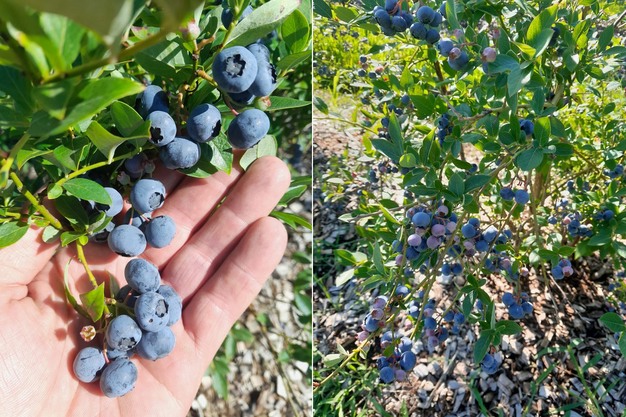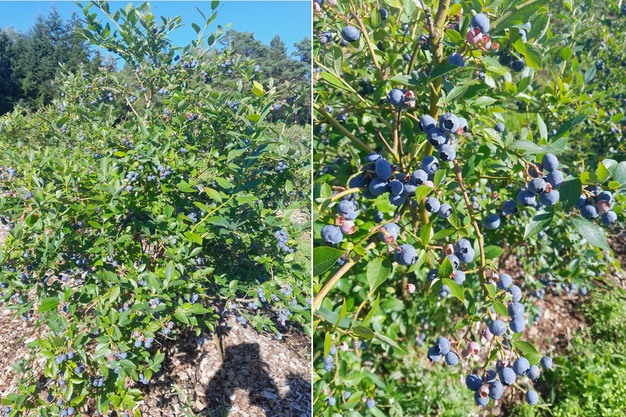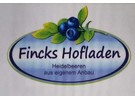The season for local blueberries also started relatively early. On 20 June, there were already plenty of early blueberries on the Finck farm in the heart of the Lüneburg Heath. "We started the harvest a good week earlier than usual. Due to the late frost during flowering, pollination was quite problematic this year. As we know, there was a lot of frost and precipitation: pollination of our plants by bees was also quite problematic this year, which was due to the continuously low daytime temperatures of around 12-14 degrees. As a result, we had to buy in a lot of bumblebees because, unlike bees, they also fly in colder weather," says owner Andreas Finck..
Due to the frost, early varieties such as Bluetta and Patriot suffered considerable losses in some cases. In contrast, the yield of late varieties such as Bluecrop and the like was much better, says Finck, who mainly serves selected trading partners at the Hamburg wholesale market. This year's season is now drawing to a close. "There are still small remaining quantities of Bluecrop and we are now in the process of harvesting the last late varieties Legacy and Liberty. We expect to have completed the harvest by 20 August. We are also noticing that the season tends to finish earlier due to climate change. My father started growing blueberries in the 1980s. Back then, the harvesters were still working with gloves until well into October to pick the produce. It's hard to imagine that today."
 © Finck HeidelbeeranbauThe new varieties in the Finck family's portfolio include Liberty, Legacy and Topshell. A small proportion of the yield finds its way to the consumer via the farm shop.
© Finck HeidelbeeranbauThe new varieties in the Finck family's portfolio include Liberty, Legacy and Topshell. A small proportion of the yield finds its way to the consumer via the farm shop.
Persistent summer lull, increased competition
At the beginning of the season, wholesale prices were around 8.50 euros/kg, but prices then fell to 2.80-3.00 euros/kg in line with the larger quantities on offer. Most recently, they climbed back up to around 4.80 euros/kg, still up to 1.00 euro/kg below the price level in the same period last year. According to Finck, there are two important factors that are having a negative impact on marketing this year. "Firstly, several partners have already told me that the holiday-related summer lull in the wholesale market business has lasted much longer this year than in other years, which is why demand has been quite subdued for a long time. Secondly, from the second week of July in particular, we feel strong competition from low-priced imported goods - whether from France, Spain, Poland or Romania." As it is impossible for domestic producers to keep up with prices, certain varieties such as Bluecrop and Dixy have to stand out from the competition.

Staff and area development
As a medium-sized fruit farm, Finck employs a total of around 80 people (including around 70 harvest workers). "We don't have any serious staffing problems yet, but we are noticing that it is becoming more difficult to find harvest helpers. We were on the verge of expanding our cultivation capacity a few years ago, but then decided against it for the reasons mentioned." Adding other crops to the portfolio would also be out of the question for Finck. "We once tried to grow gooseberries, but they ripened too late, which is why I no longer have the manpower to pick the fruit. What's more, blueberry cultivation is just one of the four branches of our business. At some point, it would be too difficult to manage all the different branches."
For more information:
Andreas Finck
Finck Heidelbeeranbau
Lindener Weg 11
29581 Gerdau
Tel: +49 163/8361251
Email: heidelbeeranbau-finck@web.de
